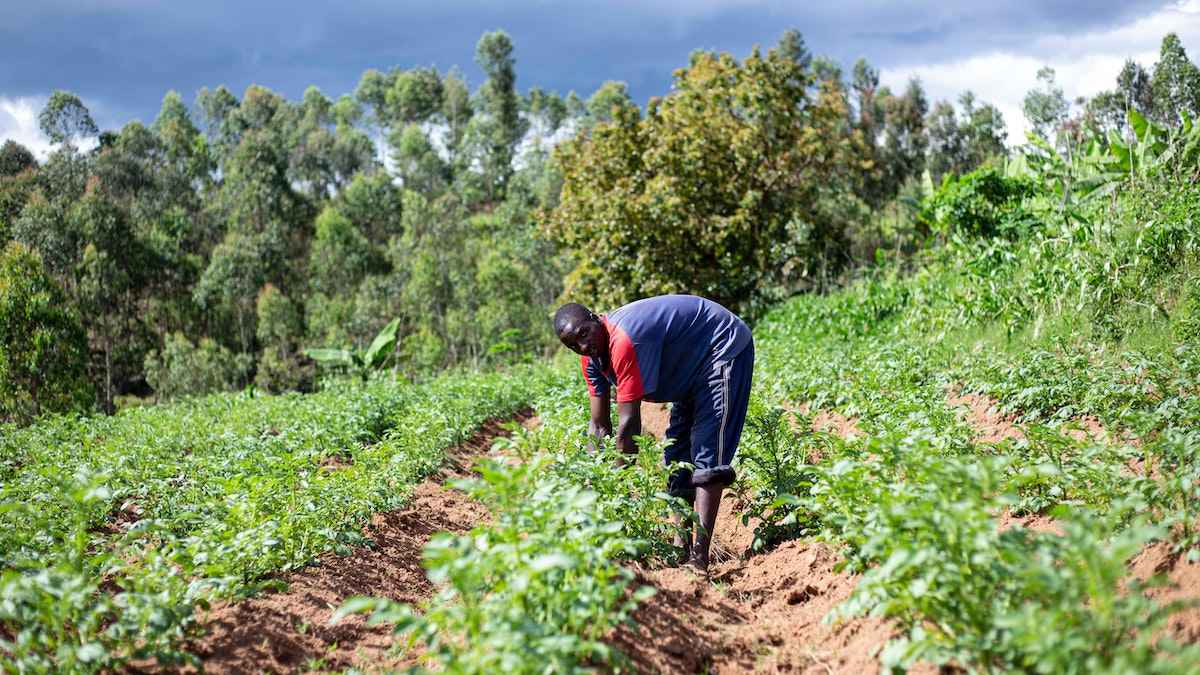The competition will culminate in an exciting final pitch contest live on stage at the AGRF Summit to be held this year in Dar es Salaam, Tanzania, in September
NAIROBI, Kenya, May 8, 2023/APO Group/ —
Youth-led African agrifood businesses are back in the spotlight as Generation Africa rolls out the 2023 edition of the Gogettaz Agripreneur Prize Competition (https://GoGettaz.Africa). Applications are open from 8 May to 19 June 2023. The competition will culminate in an exciting final pitch contest live on stage at the AGRF Summit to be held this year in Dar es Salaam, Tanzania, in September. Two young African entrepreneurs, one man and one woman, will be awarded a game changing US$50,000 each to accelerate their journey to scale.
Generation Africa is commemorating its fifth birthday and over the last half-decade, the GoGettaz Agripreneur Prize Competition has established itself as the biggest, annual agripreneurship competition in Africa. By identifying and supporting innovative, high-potential agribusinesses, Generation Africa aims to inspire millions of youths to pursue a career in the fast-evolving agrifood sector. The organisation’s support efforts continue to grow and include a bespoke Generation Africa Fellowship Programme (GAFP), specially curated scholarship opportunities, advocacy platforms and more.
“Agripreneurship is the biggest, most important opportunity in Africa. Especially with the power of emerging technologies in the sector, we want African youth to grab this opportunity with both hands,” said Dickson Naftali, Head of Generation Africa. He emphasised, “A strong, African-led agrifood sector is our best hope for a prosperous continent without hunger and malnutrition; but we must develop our agrifood sector better, more sustainably, and more responsibly.”
The competition is open to all African agripreneurs between the ages of 18 and 35, who are the founders or co-founders of innovative and scalable agrifood businesses. With top mentors, a network of global industry leaders, and a growing community, the GoGettaz Agripreneur Prize Competition seeks to fast-track the growth of agribusinesses with the potential to ensure food security and provide dignified employment. Applicants must be citizens of an African country, and their business headquarters must be in Africa. For more information and to enter the competition, applicants can go to: http://GoGettaz.Africa.
After the semi-final process, twelve finalists will be invited to pitch their businesses to a panel of expert judges. Finalists will also be given facilitated access to the AGRF Agribusiness Deal Room to grow their network with potential investors, partners, and collaborators. The award ceremony will also take place at the AGRF Summit. Beyond the two US$50,000 grand prizes, additional Impact Awards of US$2,500 each will be awarded to four innovative businesses who make a positive social and environmental impact by contributing to climate-preneurship, food security, poverty reduction, and/or job creation in their communities.
Dr. Agnes Kalibata, President of AGRA, said, “In just five years, the GoGettaz Agripreneur Prize Competition has become a critical platform for identifying and supporting young African entrepreneurs who are boldly launching businesses in the agrifood sector. In the process they are creating wealth for themselves and their families and driving economic growth on the continent. We are excited to see the innovative and scalable solutions that the next generation of agripreneurs will bring to the table.”
Svein Tore Holsether, President and Chief Executive Officer of Yara International and Generation Africa Co-Founder and Ambassador, commented, “In order for Africa and the world to achieve a nature-positive food future, capacity-building and empowerment of farmers and agri-entrepreneurs – especially women and young people – is critical. Generation Africa and the GoGettaz Competition play a vital role in helping to support this continent’s best and brightest who are contributing to regional and global, sustainable food security.”
Generation Africa Co-Founder, Strive Masiyiwa, Founder and Executive Chairman of Econet Group and Cassava Technologies, remarked, “When Svein Tore and I first talked about engaging youth in Africa’s agrifood sector, we hadn’t yet faced a global pandemic or huge disruptions in the food supply chain. As the fastest growing demographic on earth, our young African entrepreneurs are now imagining new agribusiness models, harnessing the power of agritech and innovative food science technologies to create new markets and prosperity. They’re remarkable. A long way to go but the aim is for Africa to be a net food exporter, not the other way around!”
Dickson Naftali added, “The agrifood sector is the key: jobs, food security, cutting-edge technology, professional growth, resilient communities, even mitigating the effects of climate change. When our young people believe in the potential this industry holds for them, Africa will be transformed. It is very dynamic.”
The GoGettaz Agripreneur Prize Competition has become a cornerstone in the African agrifood space. This year’s campaign is calling for entries from young entrepreneurs on Facebook (https://apo-opa.info/3pl0UwB), Instagram (https://apo-opa.info/3M52QlC), Twitter (https://apo-opa.info/3LJDkRn), and LinkedIn (https://apo-opa.info/42vNM5V), and goes live along with the annual survey (https://apo-opa.info/42B078Q), a valuable tool to align and motivate stakeholder engagement and programme focus. With the support and expertise of its founders and partners, Generation Africa is excited to lead even more youth to scale in 2023. Applicants can visit http://GoGettaz.Africa to enter the competition.
Generation Africa Co-Founders:
African Development Bank Group: https://www.AfDB.org/
AGRA: https://AGRA.org/
The competition is open to all African agripreneurs between the ages of 18 and 35, who are the founders or co-founders of innovative and scalable agrifood businesses
The AGRF: https://AGRF.org/
Bayer: https://apo-opa.info/3p9D3j6
Corteva Agriscience: https://www.Corteva.com/
Econet: https://www.EconetAfrica.com/
Heifer International: https://www.Heifer.org/
Norwegian Agency for Development Cooperation: https://www.Norad.no/
Southern African Confederation of Agricultural Unions: http://www.SACAU.org/
Syngenta Foundation for Sustainable Agriculture: https://www.SyngentaFoundation.org/
U.S. Agency for International Development: https://www.USAID.gov/
Yara International: https://www.Yara.com/
Generation Africa Collaborators:
Nourishing Africa https://NourishingAfrica.com/
One Young World https://www.OneYoungWorld.com/
Trello Board: https://apo-opa.info/3B4BqG8
Distributed by APO Group on behalf of GoGettaz Agripreneur Prize.
